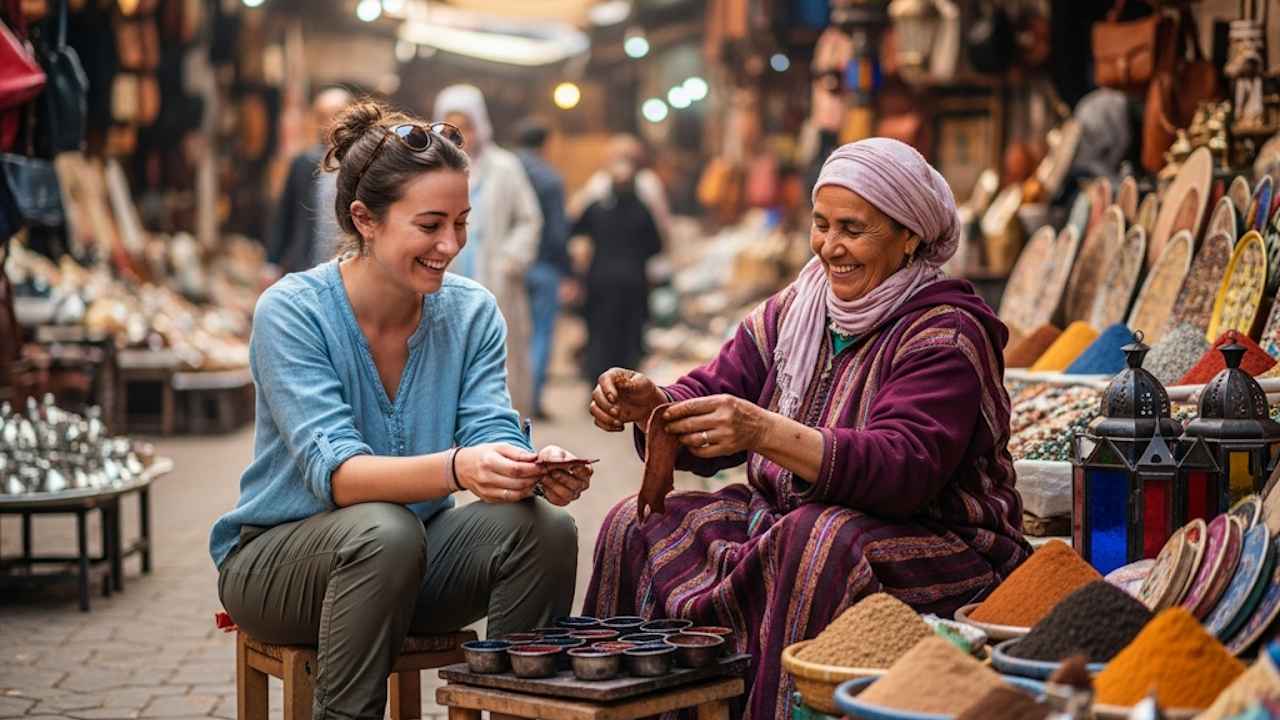In an increasingly globalized world, the idea of travel has evolved far beyond sightseeing and ticking landmarks off a checklist. More travelers today are seeking genuine connections with the places they visit. Cultural immersion, a style of travel focused on engaging deeply with local people, customs, and traditions, offers a path toward a richer and more meaningful experience. Instead of simply observing a destination from the outside, immersive travel invites visitors to step into the rhythm of local life and participate actively in it.
Authentic travel experiences are defined not by luxury or comfort, but by the depth of interaction and understanding one gains. Whether it is sharing a meal with a family in their home, attending a local festival, or learning a traditional craft, these moments create lasting impressions. They also foster empathy and broaden perspectives, revealing the values, struggles, and joys of people from different walks of life.
One of the key components of cultural immersion is language. While fluency is not necessary, learning a few essential phrases in the local language can go a long way. It shows respect and effort, and often opens doors to warmer interactions. Locals are typically appreciative when visitors attempt to communicate in their language, even imperfectly. This effort can lead to spontaneous conversations and unexpected invitations that tourists sticking to major attractions might never experience.
Food is another gateway to understanding culture. Rather than dining in tourist-oriented restaurants, travelers who seek authentic experiences might opt for street food stalls, local markets, or family-run eateries. Trying traditional dishes, especially those tied to local history or religious practices, offers insights into a community’s way of life. Cooking classes or market tours with locals can deepen this experience, allowing travelers to learn the stories behind the ingredients and techniques.
Homestays and community-based tourism offer some of the most powerful opportunities for cultural immersion. By living with a local family or participating in rural tourism programs, travelers gain access to daily routines and traditions. They may help with farming, take part in family celebrations, or learn about generational customs. This kind of tourism also benefits host communities directly, supporting local economies and encouraging the preservation of cultural heritage.
Participation in local festivals and ceremonies is another meaningful way to engage. These events often carry deep historical and spiritual significance, offering travelers the chance to witness a community’s values and beliefs in action. Whether it is a harvest celebration, a religious ritual, or a national holiday, such events are rich with symbolism and tradition. Being present at these moments creates opportunities for genuine cultural exchange.
Cultural immersion is not without its challenges. It requires patience, humility, and an open mind. Misunderstandings can occur due to cultural differences, language barriers, or unfamiliar customs. However, these challenges are part of the learning process and often lead to personal growth. Travelers who embrace discomfort and remain curious tend to walk away with deeper insights and memorable stories.
It is important to approach cultural immersion with respect and sensitivity. Authentic travel should not be about consuming culture for entertainment, but about engaging in a mutually respectful exchange. Travelers should do their homework, learn about local norms, and ask for permission before taking photos or participating in sacred rituals. Supporting local guides and ethical tourism operators helps ensure that experiences are beneficial to all parties involved.
Technology and social media have made it easier than ever to research and plan immersive travel. Online platforms connect travelers with locals offering personalized tours, workshops, and cultural experiences. While this convenience is helpful, travelers should remain discerning. Not every offering labeled “authentic” truly represents the local culture. Seeking recommendations from trusted sources and reading reviews can help ensure a genuine experience.
Education plays a role in preparing for cultural immersion as well. Reading about a country’s history, politics, and social dynamics can provide essential context. Watching documentaries, reading local authors, or listening to regional music before departure can enhance understanding and appreciation. The more informed a traveler is, the more meaningful their interactions are likely to be.
The benefits of cultural immersion extend beyond the trip itself. Engaging deeply with another culture fosters empathy and challenges stereotypes. It encourages travelers to question their own assumptions and broaden their worldview. This kind of travel has the potential to build bridges between communities and promote a more interconnected and compassionate world.
In conclusion, cultural immersion offers a powerful alternative to conventional tourism. It emphasizes connection over consumption, depth over breadth, and understanding over observation. While it may require more effort and vulnerability, the rewards are profound. Travelers return not just with souvenirs, but with stories, friendships, and a renewed appreciation for the diverse world we live in. Authentic travel is not only about seeing a place, but about becoming, if only briefly, a part of it.


